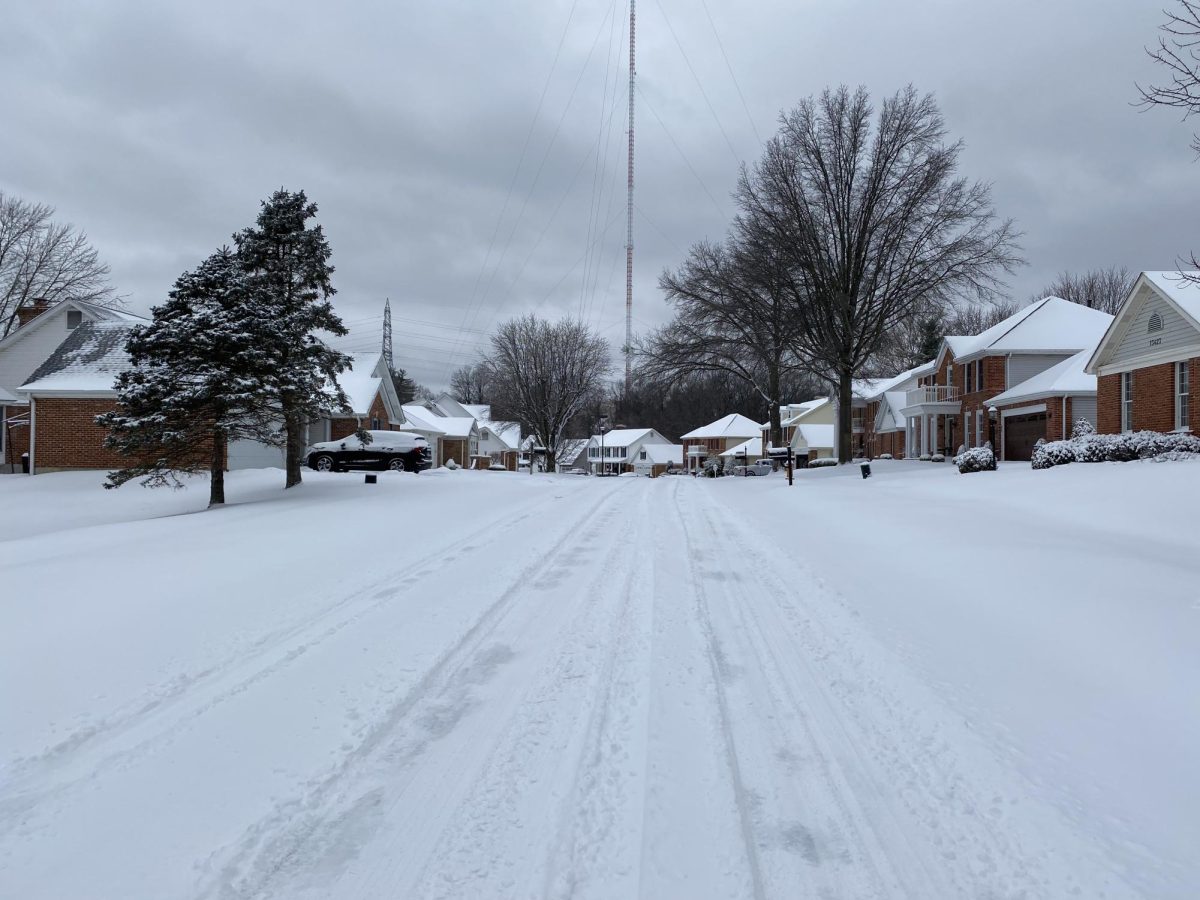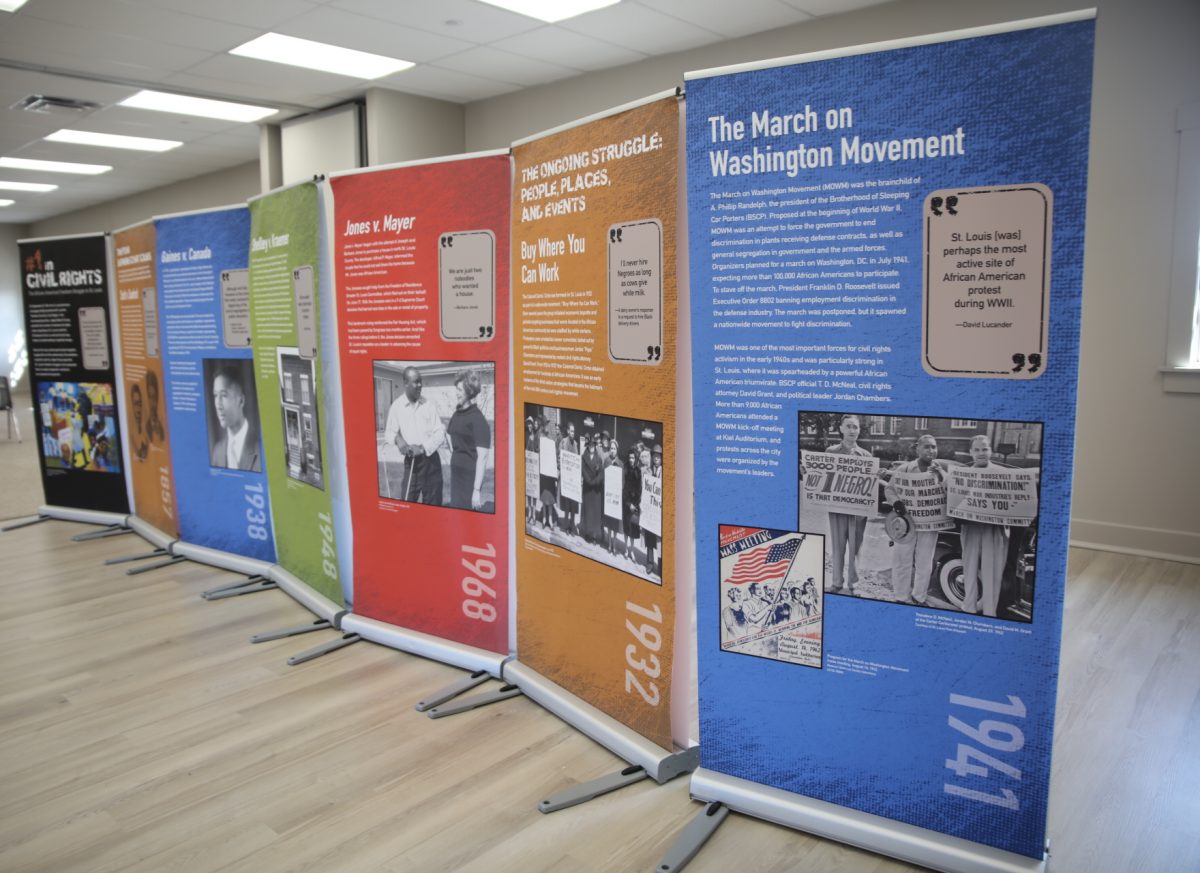The Sunset Hills Tax Increment Finance Commission recommended rejection of the Novus Development Co.’s request for $42 million in TIF assistance to construct a $163.9 million shopping center.
The Board of Aldermen will make the ultimate decision, however, and the commission’s city appointees favored the proposal. Aldermen could vote on Novus’ request when they meet at 7:30 p.m. Tuesday, April 26, at City Hall, 3939 S. Lindbergh Blvd.
Asked if the commission’s vote changed his opinion, commission Chairman John Smith, a Ward 2 alderman, said, “No. No.
“I feel a recommendation to the Board of Aldermen to approve it and let them decide what they want to do is what we should have done,” he said, refusing to specifically say whether he supported Novus’ proposal.
In a response to a Call candidate questionnaire, Ward 1 Alderman Michael Sawicki, who represents the 254 homes that would be razed if this project is approved, stated he has all the information needed to vote on the proposal and supports eminent domain for this specific request.
Novus President John Browne wants the $42 million in TIF to guarantee adequate profit on a $163.9 million shopping center at Interstate 44 and Watson Road near South Lindbergh Boulevard. Main Street at Sunset would include “high-end” shopping, he said, along with office space and restaurants.
The project would raze 254 homes and several businesses in the Sunset Manor subdivision. Some residents signed contracts to sell, but others do not want to leave.
“I can only say this: There’s 75 percent of the affected residents in favor of this,” Browne said when asked his chances with the Board of Aldermen given the commission’s negative vote. “We live in a democracy. You have to give it a good chance if there’s 75 percent that want it.
“I apologize to them for this agony. It’s agony,” he said, referring to the likelihood another developer will come back with a similar proposal and perhaps seek eminent domain. “I don’t know that we will, but I’m sure there will be someone.”
Smith along with four other Sunset Hills’ appointees voted to recommend approval of the project. Six representatives from the county, the Lindbergh School District and other taxing entities, however, voted against the TIF.
With one city representative absent, the commission voted 6-5 to recommend rejection of Novus’ request. If that one city representative had been present, the vote likely would have been 6-6, Smith said, and a formal recommendation would not have been made. Without a formal recommendation from the commission, the Board of Aldermen legally cannot proceed on the matter.
“I got the impression as this whole thing went along that it was more about getting rid of a neighborhood than creating a much-needed additional sales-tax revenue,” said Glenn Powers, director of the county Department of Planning.
“They have to take a hard look at it,” said Pat Lanane, chief financial officer for the Lindbergh School District. “I mean, $42 million is a lot of money. That is an extremely large TIF. A lot of TIFs we’re talking $10, $20 million. Forty-two million is a lot of money.”
“It’s taken an increasing portion of our sales tax dollars in recent years, so we look at things a little more critically than we used to,” said Tom Curran, who represents County Executive Charlie Dooley. “We’ve not had our sales tax keep up with inflation over time. We also had concerns about preservation of moderate income or affordable housing in this district.
“We have a different perspective than the city,” he continued. “The city is looking out for its own interests in terms of its tax base and what it wants to do, and we are looking at the county as a whole. If you accept the argument that the total amount of sales tax dollars in the region will grow over time faster because of redevelopment, then it would seem we would have some tremendous growth based on the amount of redevelopment that has taken place and the amount of subsidized projects in the recent past, but we’ve not seen that …”
Lindbergh’s negative votes confused Browne, who said the proposal would have benefitted the district in 12 to 15 years when the bonds were repaid and the school district began collecting on the growth in property value. Tax revenue for the county, meanwhile, would not be captured, he said, questioning the county’s vote.
“Tom, that’s not the answer,” Browne said, interjecting in Curran’s interview with reporters. “What did you protect by doing this? Your (sales tax) isn’t captured … If you need roads, is it going to come from that existing development or is it going to come from redevelopment?”
Curran responded, “We feel that there is a limit to the total amount of sales tax dollars that are being spent in the area. We have not seen that dramatic growth despite a lot of subsidized projects throughout the region, and so at some point we have to think, I think, more critically.
“And in this situation there are a lot of issues,” he added. “We’ve been contacted by owners — business owners and residential — who are very unhappy with the situation. I’m just convinced that this could have been a better situation. And I know that there are a lot of people who wanted to move and a lot of people who are probably unhappy with us at this moment, but the city can take our recommendation and choose to move forward as it sees fit. And as I said, we did support (TIF) projects in the past. This is a very different animal in terms of the level of displacement. We do have concerns about it. I think the school district had concerns about it as well. And we do feel that for persons who wanted to stay in the Lindbergh School District, that their options were limited.”
Curran also expressed concern regarding the fair buyout of the homes and businesses in Sunset Manor.
“It’s a very difficult situation with the number of parcels to acquire and assemble,” he said.
“Why is that your concern?” Browne asked. “I mean, that’s my concern.”
“We are concerned about happens to the residents that are displaced,” Curran replied.
“And I am too,” Browne responded.








